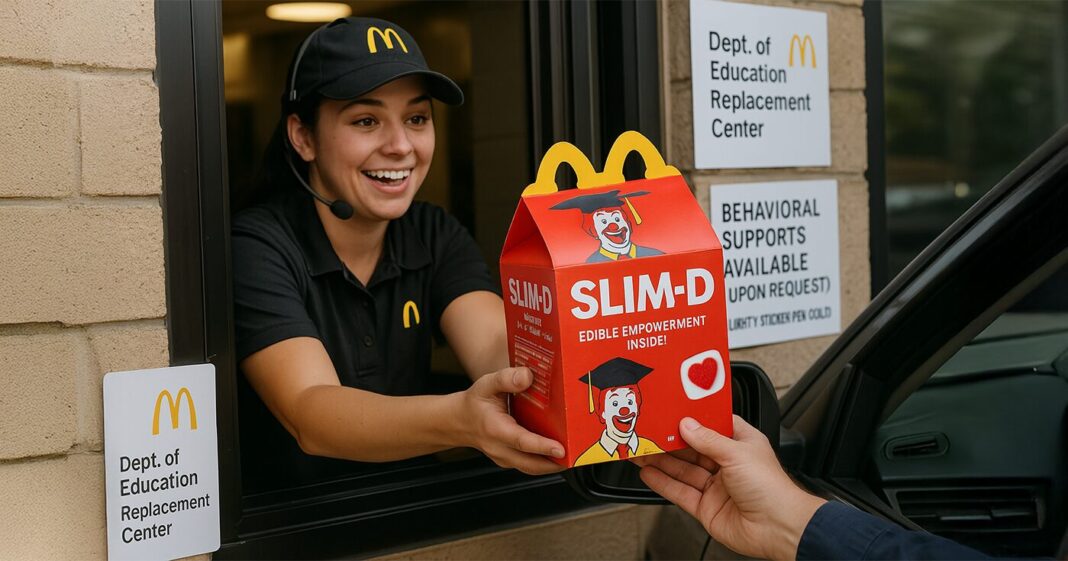Washington, D.C. — In a landmark step toward “educational liberation and market-based inclusivity,” the Trump administration this week announced a sweeping decentralization initiative that will transfer core special education support services from the former U.S. Department of Education to a more nimble, consumer-responsive partner: McDonald’s Corporation.
The program, known internally as the Specialized Learning Incentive Meal Distribution (SLIM-D), is being heralded as a “21st-century freedom framework for individualized learning consumption,” designed to “unleash the creative potential of America’s children—one toy at a time.”
“After decades of federal overreach,” said Education Secretary Linda McMahon, “we are finally unshackling families from the bureaucratic tangle of compliance culture and letting them access personalized, digestible learning content in convenient drive-thru environments.”
“Empowered Outcomes through Edible Learning Units”
SLIM-D Happy Meals will serve as Modular Educational Delivery Systems (MEDS) tailored to a child’s unique dietary and cognitive profiles. Each meal includes:
-
Speech Stimulation Straws™, part of McDonald’s new Oral Advancement Initiative.
-
Phono-Flavored Nuggets: bite-sized phoneme exposure wrapped in gluten-free batter.
-
Neurodiversity Stickers: dynamic behavior tracking tools printed with emojis and ranch-smudged affirmations.
-
A QR code that links to the McIEP™ Learning Portal, where families can design their child’s learning pathway through adaptive AI and Ronald’s curated “Growth Mindset Nuggets.”
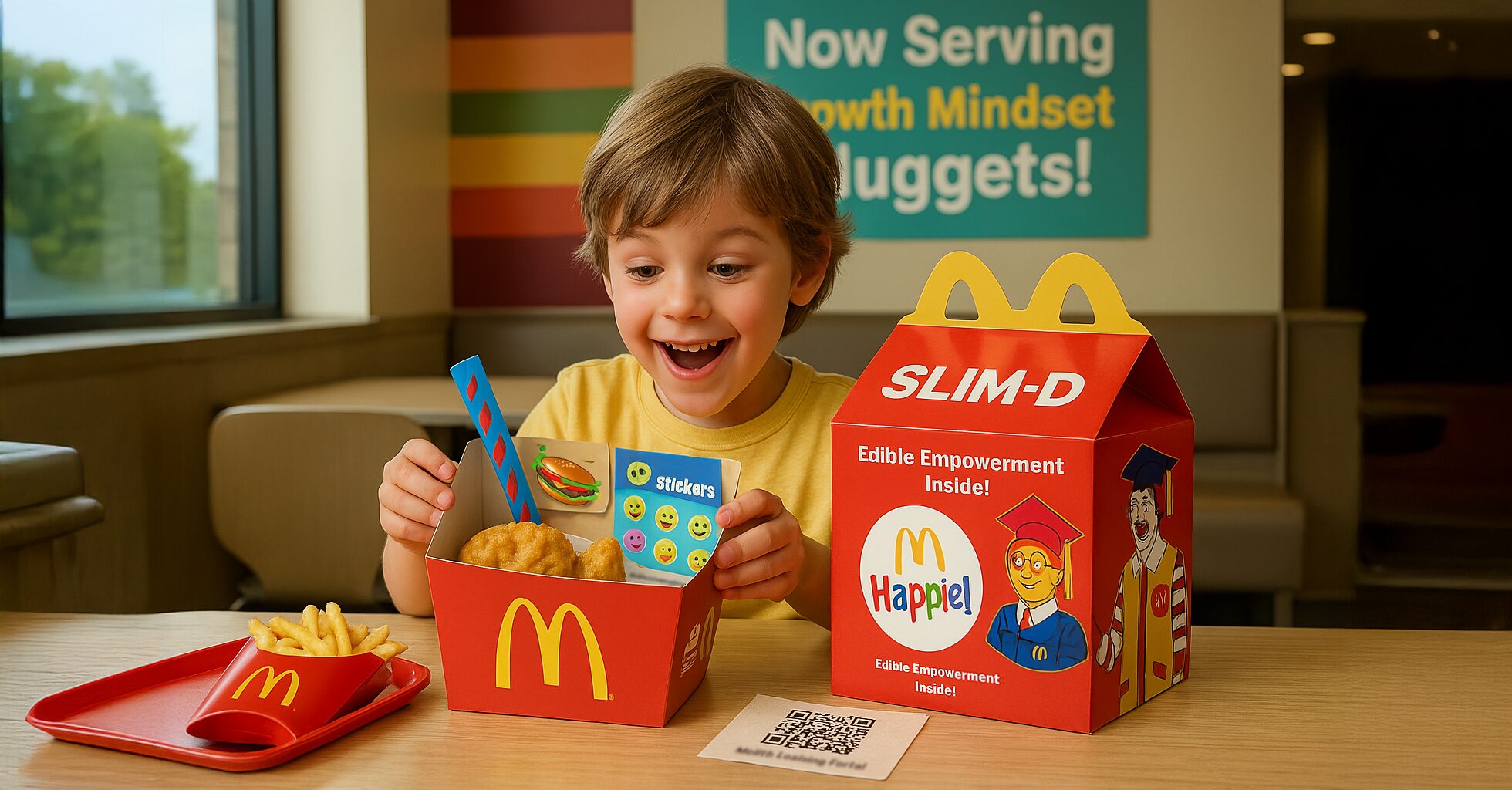
According to McMahon, this model “de-silos the child” and fosters a “holistic, taste-forward approach to cognitive development.”
The Reassignment of Federal Oversight
Prior to its patriotic sunsetting, the U.S. Department of Education enforced regulations ensuring equitable access to special education services under IDEA and Section 504 of the Rehabilitation Act. Critics labeled this “accountability.” The administration, however, calls it regulatory bondage.
“With SLIM-D, we’re empowering families to self-actualize their educational experience,” said McMahon. “No more top-down mandates. No more standardized expectations. Just parents, children, and the free market, working in harmony.”
A White House policy brief describes the Department’s dissolution as an act of “civic decluttering,” intended to “free local communities from the paralyzing influence of fact-based equity standards.”
Access for All. Or Most. Probably.
SLIM-D will launch in 14 pilot states selected for their “adaptive readiness scores” and “branding compatibility.” Families in these regions can begin accessing educational benefits by entering their child’s McLearning ID at participating kiosks.
Pam Bondi, Attorney General and Chair of the American Liberty Futures Taskforce, dismissed concerns that privatizing special education might widen disparities:
“Freedom does include the freedom to fall behind. But more importantly, it includes the freedom to receive a behavioral support sticker with your cheeseburger.”
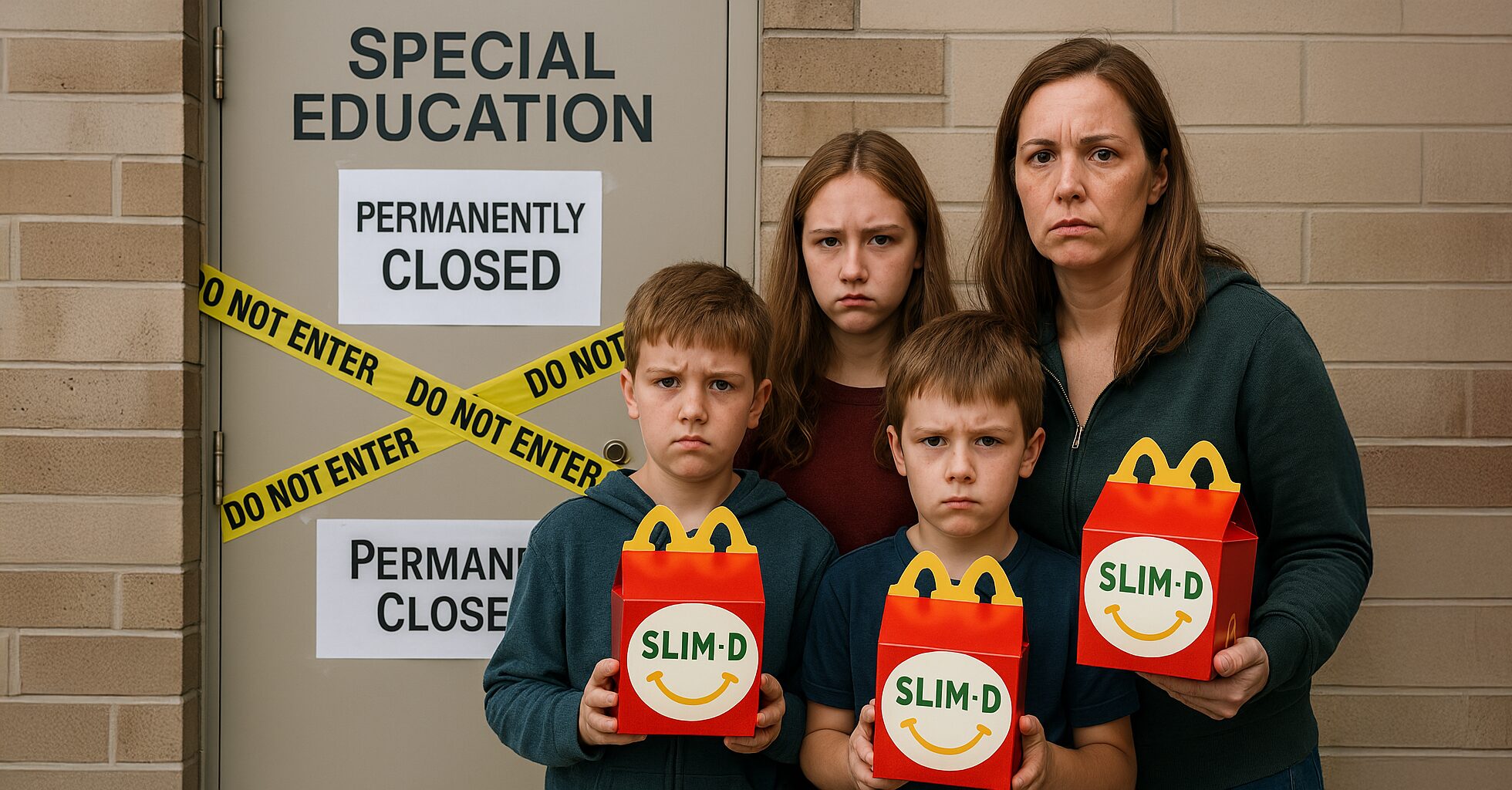
Critics have described the shift as “policy abandonment masquerading as innovation,” pointing out that families in underfunded school districts relied on federal enforcement to ensure even basic compliance with IDEA and Section 504 protections.
The Rhetoric of Redemption
When asked how replacing federal enforcement with a promotional toy line could ensure civil rights compliance, Bondi responded:
“Rights aren’t real unless they’re actionable in the marketplace. What we’re doing is transforming passive entitlements into edible empowerment.”
President Trump, unveiling the first EduMeal at a McDonald’s near Mar-a-Lago, called the initiative “the most beautiful education program in American history,” adding, “No child has ever learned this much while eating this well. Believe me.”
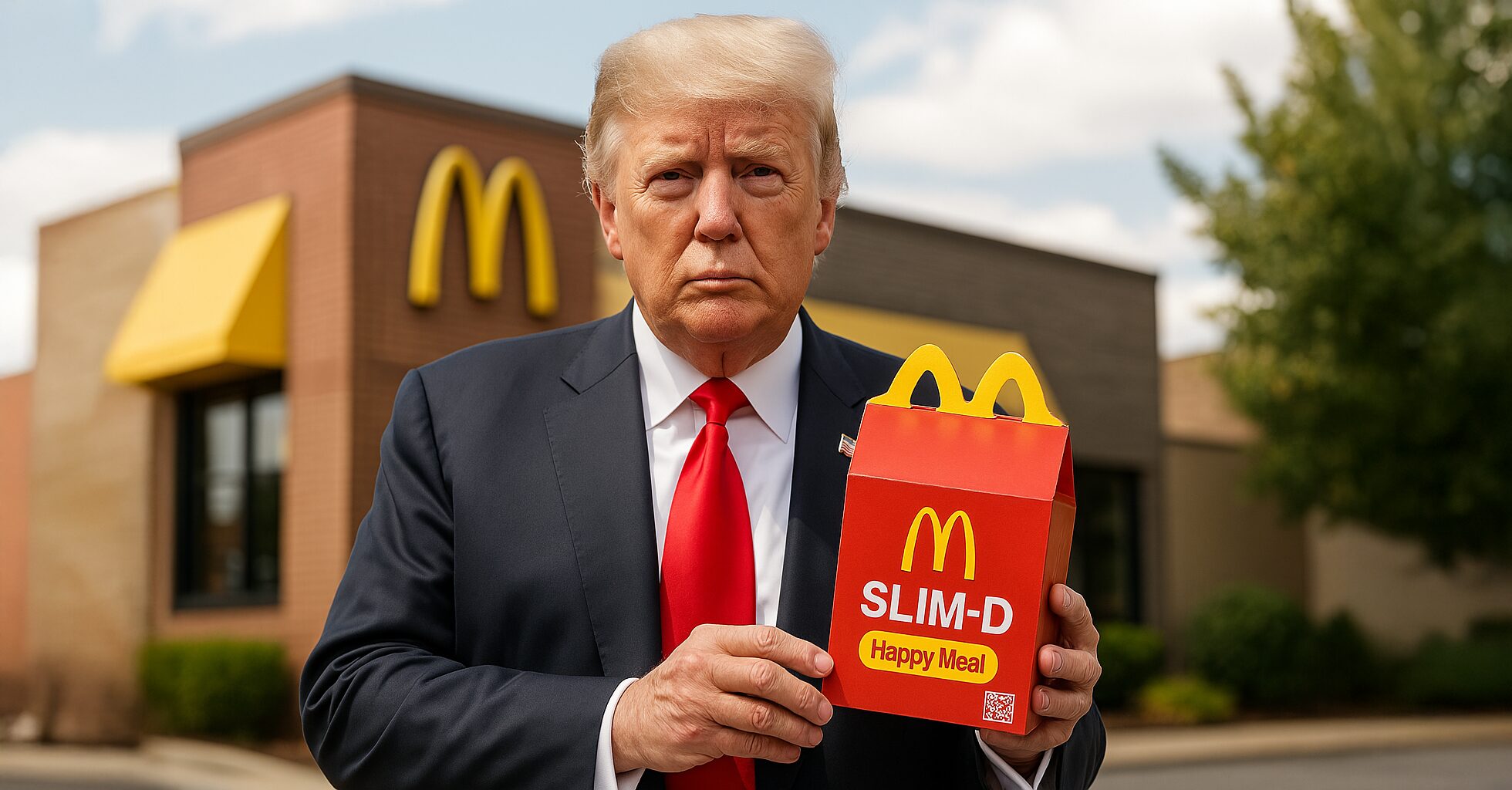
As the rollout begins in select pilot states, the administration has highlighted early public enthusiasm in its press materials.
“I haven’t tried it yet, but I’m really hopeful,” said Stacy W., a mother of two from rural Indiana. “Our school hasn’t had a speech therapist in months, so if this QR code thing helps, even a little, I’m all for it. And my son already loves nuggets. It’s like the system finally gets us.”
Next Steps in the Freedom Cascade
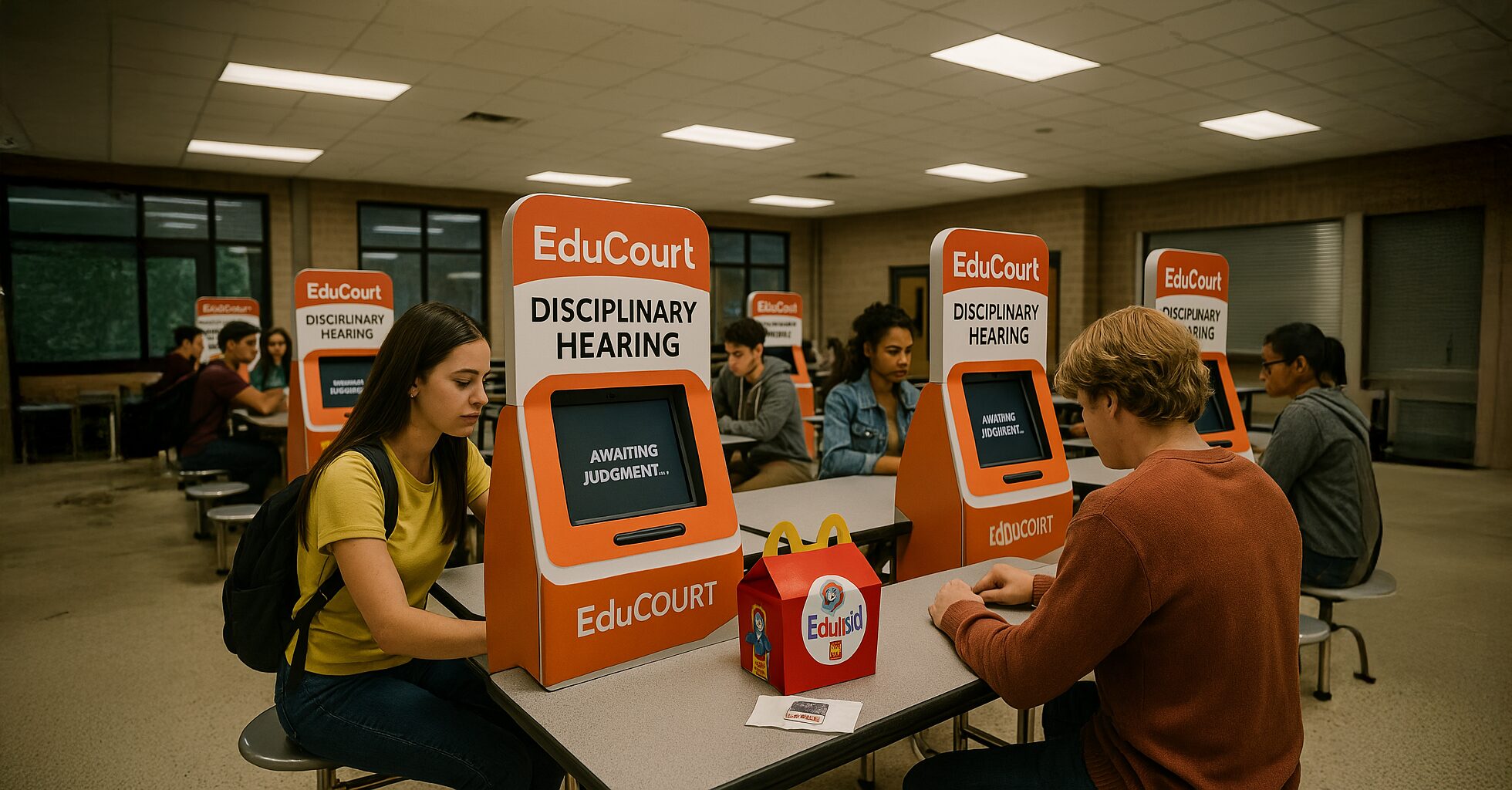
Following SLIM-D’s anticipated success, administration officials are planning to expand their Post-Governance Optimization Strategy to include:
- EduCourt™: Disciplinary hearings for students handled via automated judgment kiosks in school cafeterias.
- LunchLearn™: Core science concepts embedded in ketchup packets.
- PE4U™: Physical education guidance outsourced to Planet Fitness TikTok influencers.
- LibertyLMS: A national learning management system built entirely within the Chick-fil-A mobile app.
Meanwhile, McDonald’s has launched a new advertising campaign: “Nourishing Potential. One Fry at a Time.”
With the slogan: “The Department is Gone. But the Drive-Thru is Open.”

